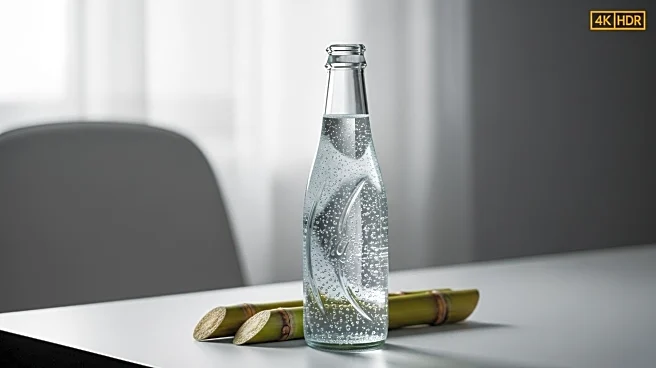What's Happening?
Coca-Cola has announced the release of a new product sweetened with cane sugar instead of high-fructose corn syrup (HFCS). This decision follows a claim by President Trump that he influenced the change. The move has been praised by Health and Human Services Secretary Robert F. Kennedy Jr. and his Make America Healthy Again Commission. However, experts argue that from a nutritional standpoint, cane sugar is not significantly healthier than HFCS. Both sweeteners have similar effects on the body, contributing to health issues like obesity and type 2 diabetes when consumed in excess.
Why It's Important?
The switch to cane sugar reflects ongoing debates about the health impacts of different types of sweeteners. While some view the change as a positive step, nutrition experts emphasize that the type of sugar is less important than the overall amount consumed. The decision by Coca-Cola could influence other companies to reconsider their use of HFCS, potentially impacting the food and beverage industry. However, the broader public health message remains focused on reducing overall sugar intake to combat chronic health conditions.
What's Next?
As Coca-Cola rolls out its new cane sugar-sweetened product, consumer reactions and sales figures will likely influence future product formulations. The company may face pressure to further reduce sugar content or explore alternative sweeteners. Public health campaigns will continue to emphasize the importance of limiting added sugars, regardless of the type, to improve health outcomes.
Beyond the Headlines
The debate over cane sugar versus HFCS highlights broader issues in food labeling and marketing. Consumers are increasingly seeking transparency and healthier options, prompting companies to adjust their strategies. This shift could lead to more significant changes in the industry, including the development of new sweeteners and reformulated products.










